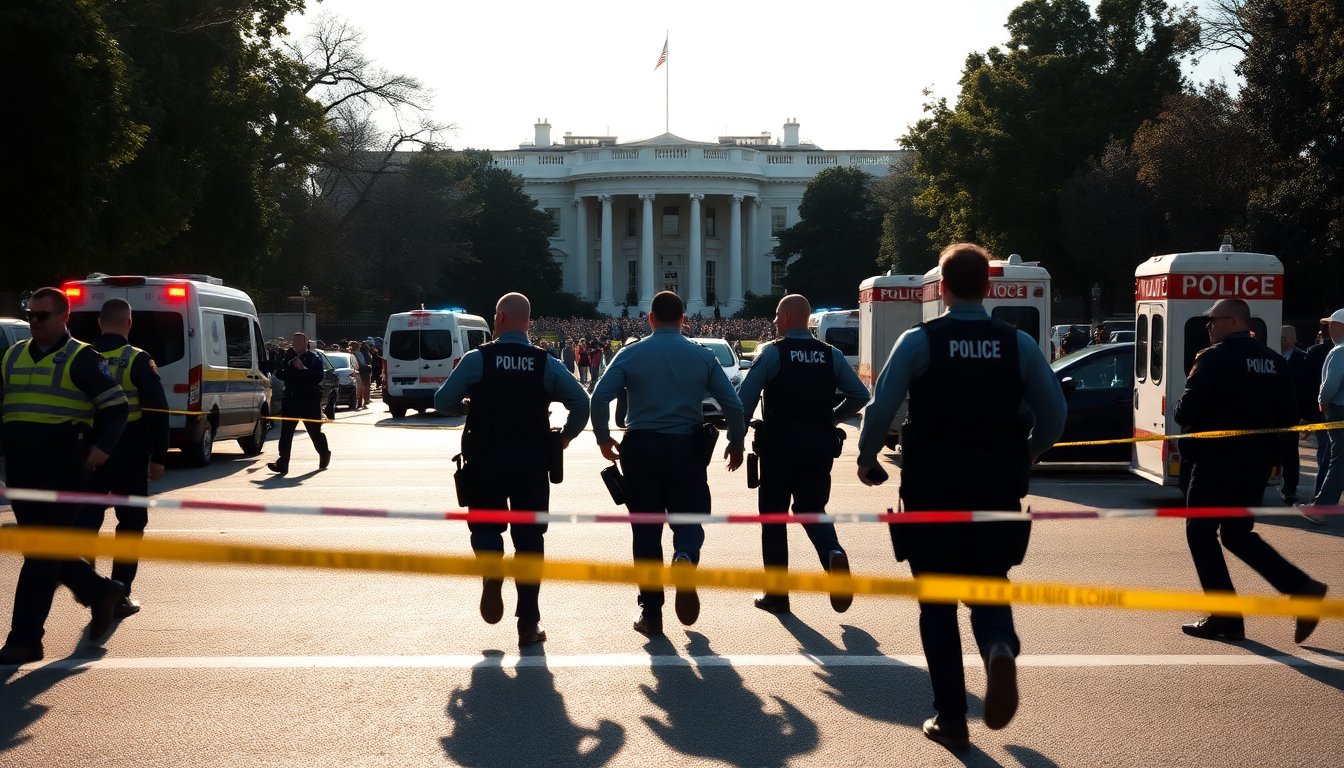Table of Contents
In a shocking incident that unfolded near the White House, two members of the National Guard were critically injured during a daylight shooting. This event has not only sent ripples of concern throughout the capital but has also ignited a fierce debate about immigration and national security. The suspect, identified as an Afghan national, has been linked to the recent influx of Afghan refugees, raising questions about the vetting process under past administrations.
Details of the Incident
The shooting occurred on November 26, in a busy area close to the White House, specifically in Farragut Square, a location frequented by tourists and commuters. Eyewitness accounts describe a scenario filled with chaos as people ran for safety upon hearing gunfire. The attacker allegedly ambushed the National Guard members without warning, resulting in a violent confrontation.
Immediate Reactions
President Donald Trump promptly condemned the attack, labeling it an act of terror and a crime against the nation. In a video address, he emphasized the need to reassess the immigration protocols for Afghan nationals who entered the United States during the chaotic withdrawal from Afghanistan. His remarks highlighted the intertwined nature of military deployment, immigration issues, and the legacy of America’s prolonged military engagement in Afghanistan.
The Suspect and Immigration Policy Implications
The suspect, a 29-year-old man named Rahmanullah Lakanwal, had arrived in the U.S. in September through Operation Allies Welcome, which facilitated the resettlement of Afghans fleeing the Taliban. This operation was initiated under the Biden administration and aimed to assist those who had worked alongside U.S. forces. However, the aftermath of the shooting has led to calls for a reevaluation of the vetting processes that allowed such individuals to enter the country.
Security Measures and Political Fallout
Following the shooting, there was an immediate increase in security measures around the White House and the surrounding areas. Defense Secretary Pete Hegseth announced the deployment of an additional 500 National Guard troops to bolster security in Washington D.C. This move aligns with Trump’s ongoing efforts to militarize law enforcement as part of his anti-crime initiatives in urban areas run by Democratic leadership.
Broader Consequences and Reactions
The tragic event has sparked widespread discussions about the balance between ensuring national security and providing refuge to those in need. Critics argue that the shooting should not be used as a basis to stereotype or demonize the entire Afghan community. Shawn VanDiver, president of #AfghanEvac, stated that while accountability for the attack is essential, it is crucial to avoid scapegoating innocent individuals based on the actions of one.
Former President Joe Biden expressed his sorrow over the incident, calling for unity against violence. Similarly, former President Barack Obama condemned the attack, reinforcing that violence has no place in society.
The Future of Immigration Policy
In light of the shooting, the Department of Homeland Security has paused the processing of Afghan immigration requests pending a thorough review of security protocols. This decision underscores the government’s commitment to ensuring the safety of its citizens while navigating the complexities of refugee resettlement.
As investigations into the motives behind the shooting continue, it is evident that this incident will have lasting implications for both security measures in the capital and the broader discourse surrounding immigration policies. The challenge now lies in finding a balanced approach that safeguards the nation while honoring its commitments to humanitarian assistance.


